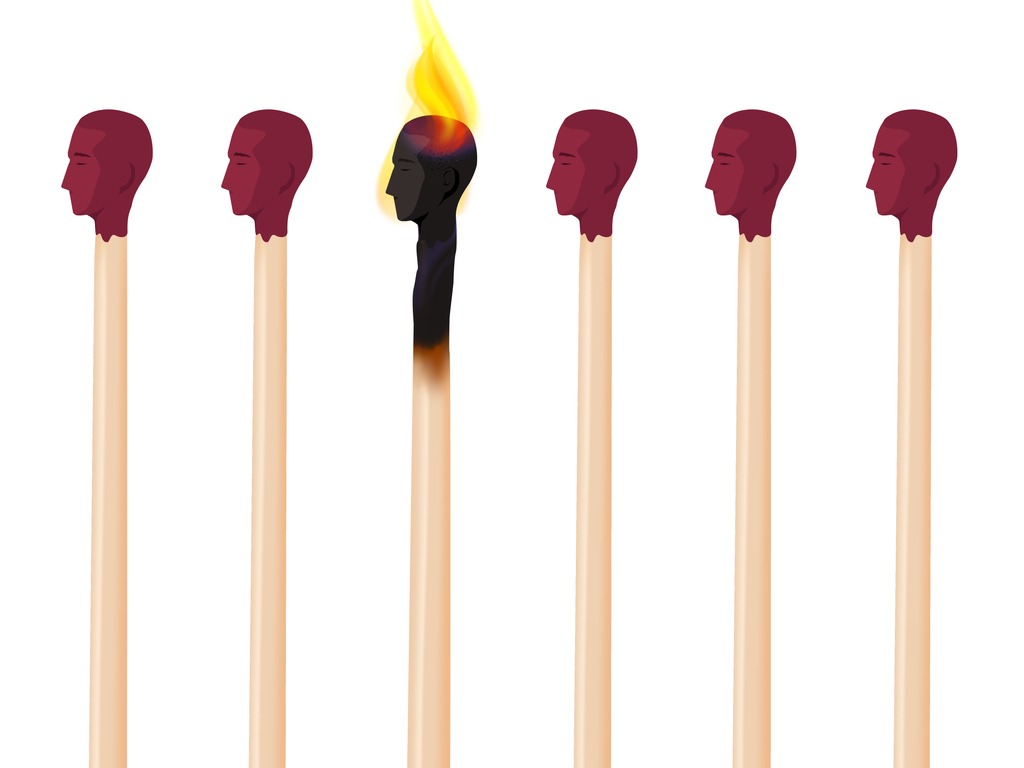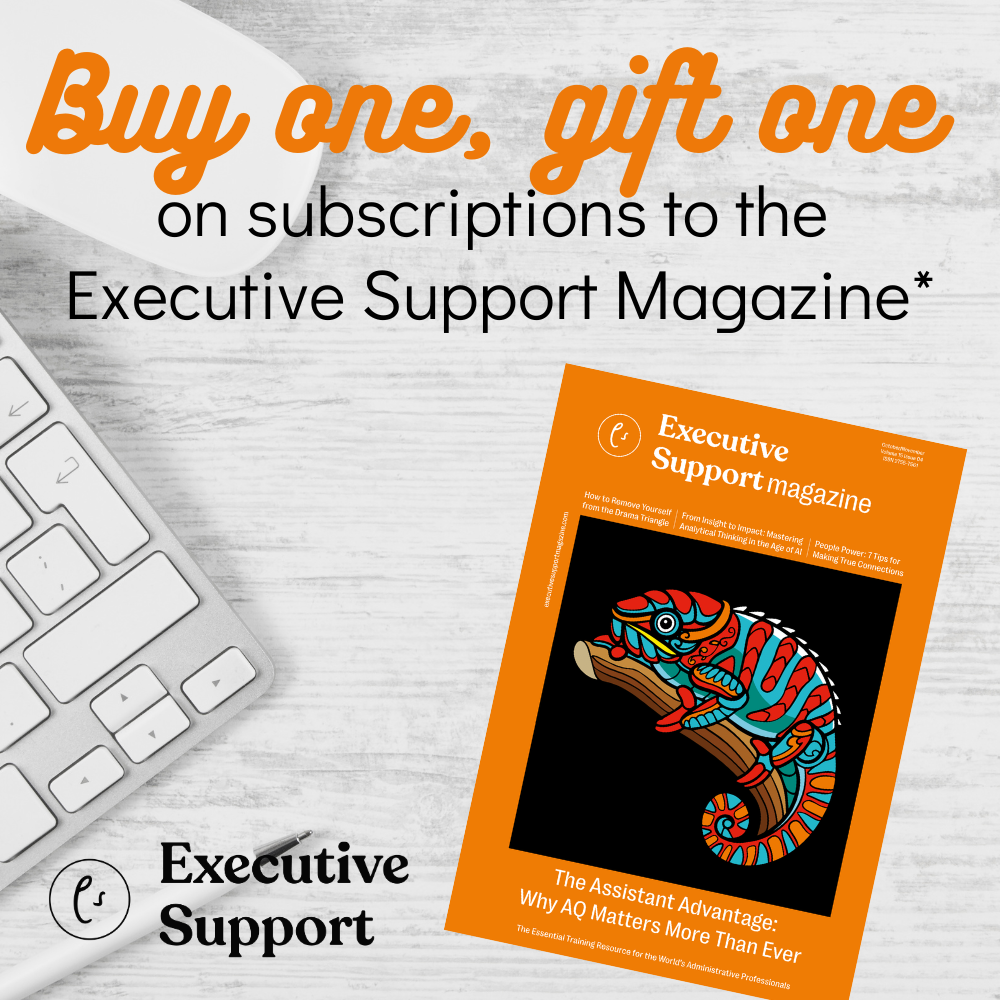
Taking care of yourself is essential not only for personal health but also for long-term professional success, explains Carole Spiers
After reading Kathleen Drum’s editorial, which featured burnout, in the June / July edition of Executive Support Magazine, I thought you might be interested in “John’s Story”. John is a fictitious character, but he could be any of the countless clients I have seen over many years.
John’s Story: From Burnout to Recovery
My name is John, and I recently experienced a significant breakdown due to overwhelming stress at work. As a new executive support professional, I prided myself on being able to handle whatever came my way. But eventually, I found myself unable to say no to increasing demands, which led to a severe burnout. My story is a testament to the consequences of overextending oneself and the importance of prioritising personal well-being.
The path to burnout
My journey towards burnout was gradual, but the warning signs were there all along. As my responsibilities grew, I struggled to set boundaries. I felt that saying no to my executive would make me look incapable, so I kept taking on more tasks. My workday stretched from 08:00 to 22:00, with only a few breaks. I was trying to be all things to all people, believing I could handle it all.
But the constant pressure started to wear me down. I became increasingly fatigued, both physically and mentally. Simple decisions became overwhelming, and tasks that once seemed manageable now felt insurmountable. It was as though my body and mind had simply “switched off”, leaving me unable to cope with even the smallest challenges.
The breakdown
Eventually, I reached a breaking point. The relentless stress and lack of self-care resulted in a complete shutdown. I realised I could no longer function effectively, and every aspect of my life – work, family, and personal well-being – was suffering. I knew something had to change.
Recognising the severity of my condition, I went to see my doctor. She immediately recognised the signs of burnout and gave me a stern warning: “Stop. You are killing yourself.” That was the wake-up call I needed. She advised me to take an extended break from work and referred me to a counsellor for additional support.
The road to recovery
The counsellor was instrumental in my recovery. Through our sessions, I learned the importance of setting boundaries and making time for myself. I began to understand that saying no was not a sign of weakness but a necessary step in maintaining my health and effectiveness.
I took the counsellor’s advice and started making significant changes in my life. I began incorporating regular physical activities, such as walking and swimming, into my daily routine. These activities not only improved my physical health but also provided much-needed mental relaxation. Spending quality time with my children also became a priority, helping me reconnect with the joys of life outside of work.
Returning to work
After three months of focused recovery, I felt ready to return to work. To my relief, my employer had been very supportive during my absence. Upon my return, I had an open and honest conversation with my executive about what had led to my burnout. Together, we discussed strategies to ensure that my workload remained manageable and that I could maintain a healthy work-life balance.
What John’s Executive Had to Say
My name is Omar, and I have the privilege – and the responsibility – of being John’s executive. Looking back, I can’t help but feel a deep sense of regret for the pressure I placed on him. In the heat of a busy workload and with mounting expectations from above, I let that pressure cascade down to my team, John included. It’s clear now that this approach was far from wise, and unfortunately, it cost us dearly. We lost John for a while, and I can’t help but think about how things could have been different.
In retrospect, it’s easy to see where I went wrong. I was so focused on meeting deadlines and targets that I didn’t stop to consider the impact it was having on the people around me. John’s recent struggles have taught me a hard lesson: the well-being of my team should never be sacrificed for short-term goals. Pressure may be inevitable, but how we manage it, distribute it, and support our teams in handling it is crucial.
This experience has been a wake-up call, reminding me that leadership is about more than just driving results; it’s about fostering a healthy, sustainable work environment. Moving forward, I’m committed to being more mindful of the demands I place on my team and ensuring that no one feels they have to bear more than they can handle. We must prioritise our people, because without them, even the best results lose their meaning.
Let’s all take this as an opportunity to reflect on how we lead and how we can better support our teams, especially in high-pressure situations. After all, it’s our people who drive success, and their well-being should always come first.
What John’s Colleague Had to Say
My name is Mary, and I am an Administrative Assistant and work on John’s team. I’m embarrassed to admit that I didn’t realise John was struggling. He’s usually so lively, but lately, he’d been quieter. I just assumed he was busy, like the rest of us. In hindsight, I could have checked in with him.
John’s journey from burnout to recovery has been a wake-up call. It’s a reminder that we often don’t know what others are going through, even when they seem fine. I’m committed to being more aware, present, and supportive of those around me.
John’s Story: Lessons Learned
My experience with burnout taught me several valuable lessons:
The importance of boundaries
I learned that it’s crucial to set limits on what I can realistically handle. Saying no when necessary is not a failure but a way to preserve energy and prevent overload.
Prioritising self-care
Incorporating physical activities and time for relaxation into my routine has been essential for maintaining both physical and mental health. These practices helped me recharge and stay resilient in the face of stress.
Open communication
I discovered that being transparent with my employer about my needs was vital in creating a sustainable work environment. By working together, we could ensure that my role remained fulfilling without becoming overwhelming.
Valuing personal time
Spending time with family and engaging in activities outside of work helped me regain a sense of balance. I realised that my personal life is just as important as my professional responsibilities.
Conclusion
My journey from burnout to recovery has highlighted the dangers of over-commitment and the critical need for self-care. By learning to set boundaries, prioritise my well-being, and communicate openly with my employer, I was able to return to work with a renewed sense of purpose and balance. My experience serves as a reminder that taking care of oneself is essential not only for personal health but also for long-term professional success.
I hope my story will resonate with others who feel like they’re struggling with no end in sight. I hope it highlights the importance of taking preventative action before burning out. This is something you can’t delegate to anyone else. Only you can take charge of your well-being.











